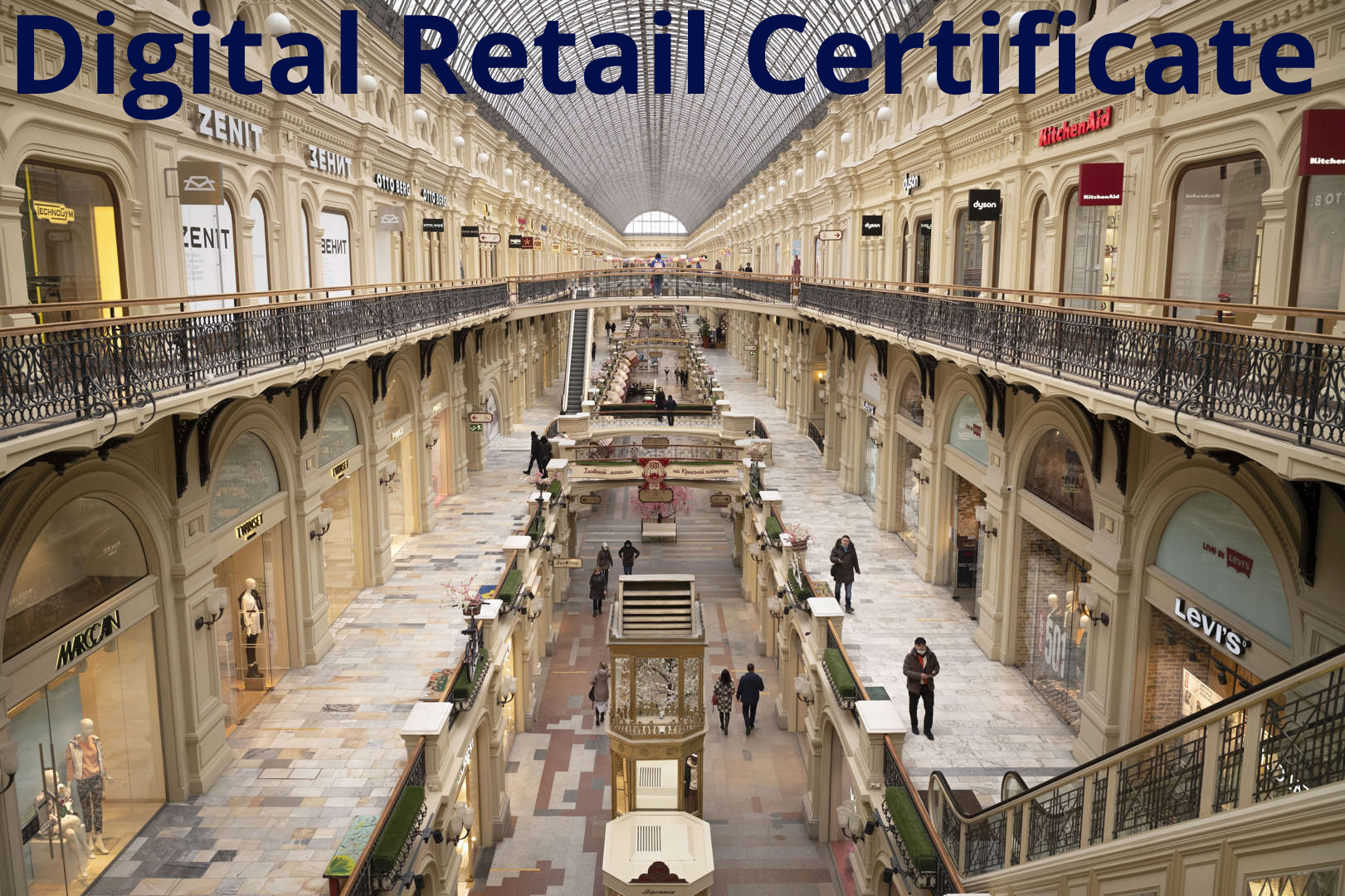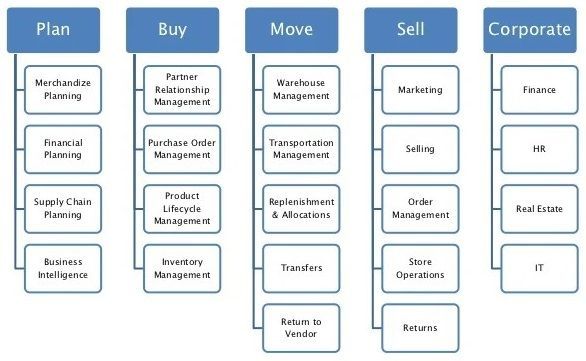
The courses in this Certificate address how the digital transformation and emerging information technologies enable/drive innovation, especially by leveraging technology to gain competitive advantage in the retail industry.
Retail is not what it was even a few years ago. Understanding emerging information technologies and their impact on the retail industry, and the roles and responsibilities of IT and non-IT stakeholders in leveraging these emerging technologies in light of the digital transformation, will be at the heart of all of the courses.

- Improve customer experience by providing personalized recommendations
- Optimize pricing strategies
- Improve inventory management
- Reduce costs by automating tasks such as demand forecasting and supply chain management
- New Customer Services to Attract More Customers
- Demand Prediction & Management
- Optimize all business processes
This certificate prepares candidates (IT and non-IT) for challenging careers in the retail industry as it progresses through the digital transformation. The certificate provides a comprehensive curriculum that focuses on the impact that emerging information technologies are having on the retail industry, combined with the essential IT management skills necessary to leverage IT in the back office and front office, while providing valuable new customer services.
The Digital Retail Certificate focuses on the use of IT to enhance the strategic, tactical, and operational elements across the retail industry value chain.
Consumers no longer think of shopping as online or offline. They want one, seamless experience that combines the best elements of both. While agile companies adopted digital strategies early on, those that clung to their traditional business models are on the verge of extinction, if they’re not already dead. The pandemic has exasperated the demand to be responsive.
It is now obvious that a digital strategy isn’t only critical for success, but for survival.
At this point, many leaders of retail companies have put digital transformation at the top of their to-do list. But important questions remain:
- Is it even possible to embark on digital transformation this late in the game?
- How can big box retailers adopt digital retail strategy with their massive storefronts and thousands of employees?
The answer to the first question is yes. Digital transformation is not only possible, but also a must. The answer to the second question is a little more complicated. Retailers have no choice but to go digital, and other industries should take note.
Most businesses will struggle to meet consumers’ expectations for convenience, immediacy, and personalization without a powerful online presence. The demise of many retailers should be a warning to company executives in all industries. Consumers expect access to digital tools in banking, healthcare, education — you name it. Companies that fail to provide these things will quickly lose out to the competition.
When creating a digital retail strategy, leaders must account for existing brick and mortar stores. For many, declining foot traffic and lower in-store sales might necessitate closing some locations. But done correctly, companies can integrate their digital retail strategy into the in-store experience.
The customer experience is central to every change the company has introduced, across all product and service offerings. The key is integrating the digital with the physical. Leveraging technology to improve the in-store experience, is also fundamental.
The courses in this certificate will develop important IT management related skills including retail industry specific analytical, strategic, communication, organization, time management, human resource management, and service management. Candidates will also develop specific retail industry technical leadership and management strategies and skills related to finance, accounting, marketing, services, as they gain knowledge of industry/product specific subject matters (e.g., department stores, clothing stores, grocery stores, convenient stores, specialty stores, auto, home furnishing, multi-channel).
The courses are designed for IT and non-IT professionals whose roles involve leveraging digital retail industry opportunities to provide demonstrable value from their IT investments, in light of the digital transformation and emerging information technologies (e.g., AI, blockchain, social media, analytics, big data), while addressing important considerations like providing a secure infrastructure and hybrid work environment.
Given the diversity of the Retail industry (e.g., department stores, clothing stores, grocery stores, convenient stores, specialty stores, auto, home furnishing, multi-channel), and the background of the candidates, GIIM will work with you to ensure all objectives are attained.
The following is the template describing the 4 courses for this certificate:
(All courses are available live/synchronously
face-to-face & online)
1. Retail Industry IT Trends and Issues
The certificate starts with the business imperatives of companies operating in this sector, and their approach to creating an IT strategic plan and project roadmap intended to create worthwhile business value encompassing the entire value chain. The unique challenges of competition, regulatory compliance, lifestyle changes, security, massive data sets, business analytics locations etc. are addressed. The impact of emerging technologies (e.g., blockchain, robotics, AI, cognitive computing, analytics, big data) will be focused on.
2. Retail Industry Technical-Processes
The certificate then deals with the technologies involved in the retail technical systems for building, maintaining, and scheduling the infrastructure. Understanding how to leverage emerging technologies (e.g., blockchain, social media, analytics, big data) is essential.
3. Retail Industry Back Office Operations
The third course deals with the business functions that support finding, development & production, such as Finance, HR, Production Accounting, Legal, Tax, Treasury etc.
4. Retail Industry IT Best Practices
The fourth and final course deals with best-practice execution, in terms of organizational governance, marketing, buying, distribution, incentives/clubs, sourcing & vendor management, portfolio & project management, and service delivery.

As Retail organizations accelerate the digital transformation of their industry, they are focusing their investments in leveraging information technology to improve customer/client products/services while lowering overall costs. In today’s highly regulated, increasingly resource-constrained, and cost-focused environment it is essential to understand how to effectively and efficiently manage an organization’s information technology (IT) resources. There are numerous strategic, tactical, and operational choices to be made about managing Retail IT resources and it is essential to ensure that IT and non-IT executives across the organization work in harmony.
Experience has made it clear that Retail organizations need well-conceived organizational structures, skills, processes, and decision rights to ensure that IT investments are appropriately leveraged across the organization, especially when considering the impact of emerging information technologies.
This course prepares Retail executives by providing a comprehensive understanding of the fundamental decisions related to the management of IT resources in the Retail environment. The course will also provide an overview of current and future information technologies and their potential impact on customers/clients, organizations, and associated stakeholders.
The course is designed to be delivered live/synchronously (face-to-face or online) with a total of twenty (20) contact hours. While the schedule is flexible, it is usually delivered in approximately ten (10) 2-hour modules/lectures/sessions.
The IT-Retail topics include:
- Deriving IT-business strategies
- Considerations for types of
- organizational structure
- sourcing
- governance (i.e., decision-making and decision rights)
- roles/responsibilities
- processes
- Leverage emerging digital technologies
- The business value of IT
- The definition, concepts, and contexts of Retail IT
- Enhancing business-IT alignment












